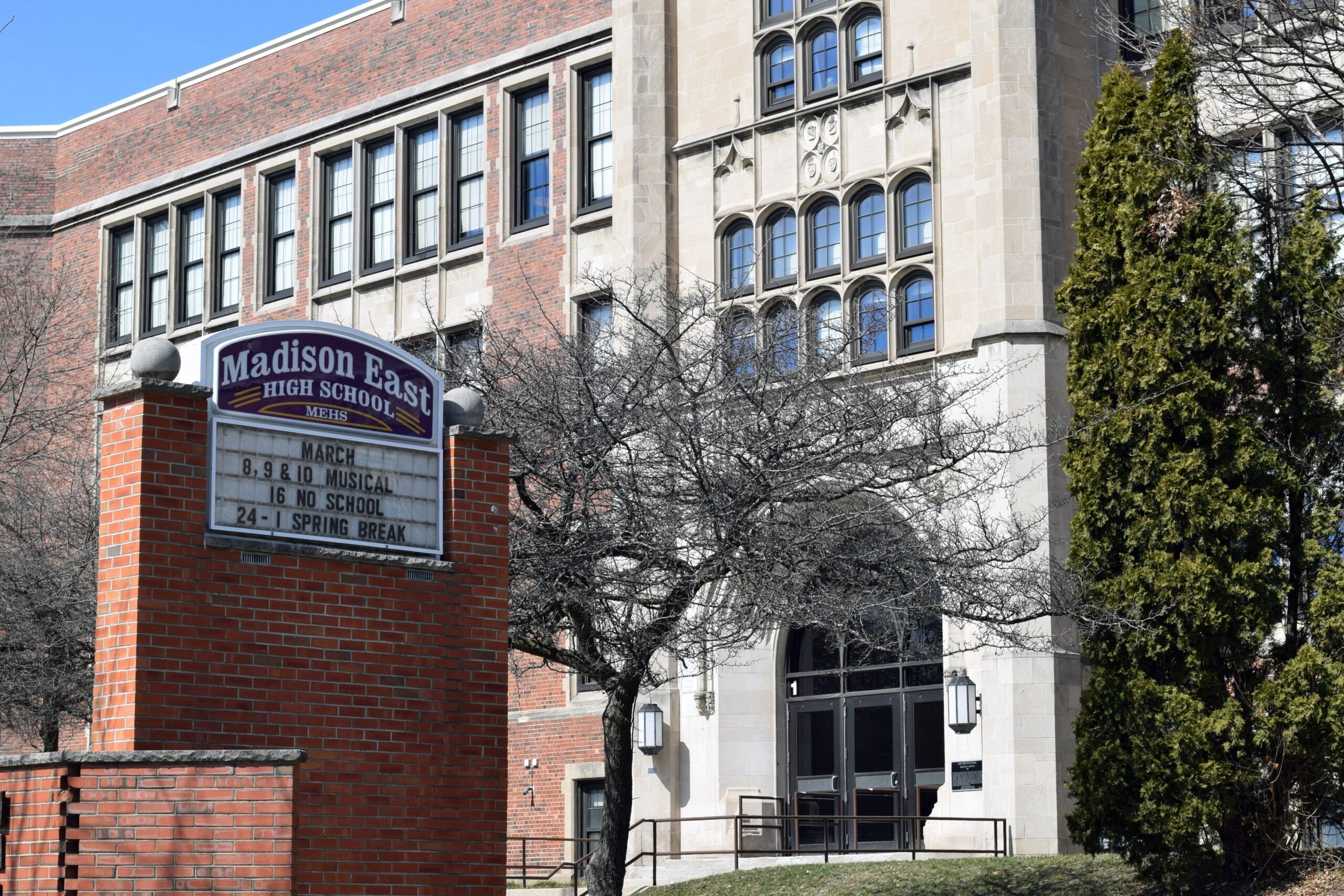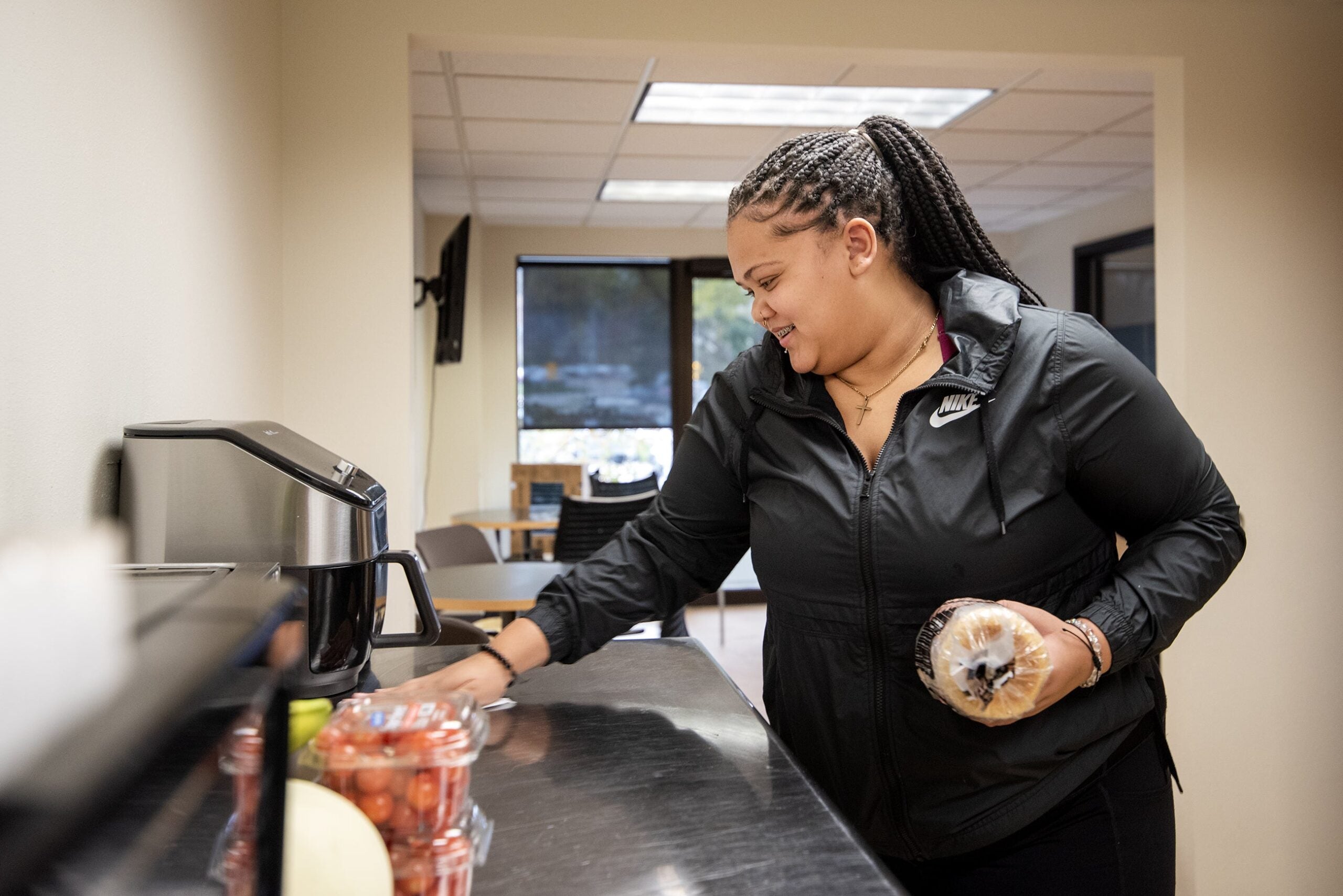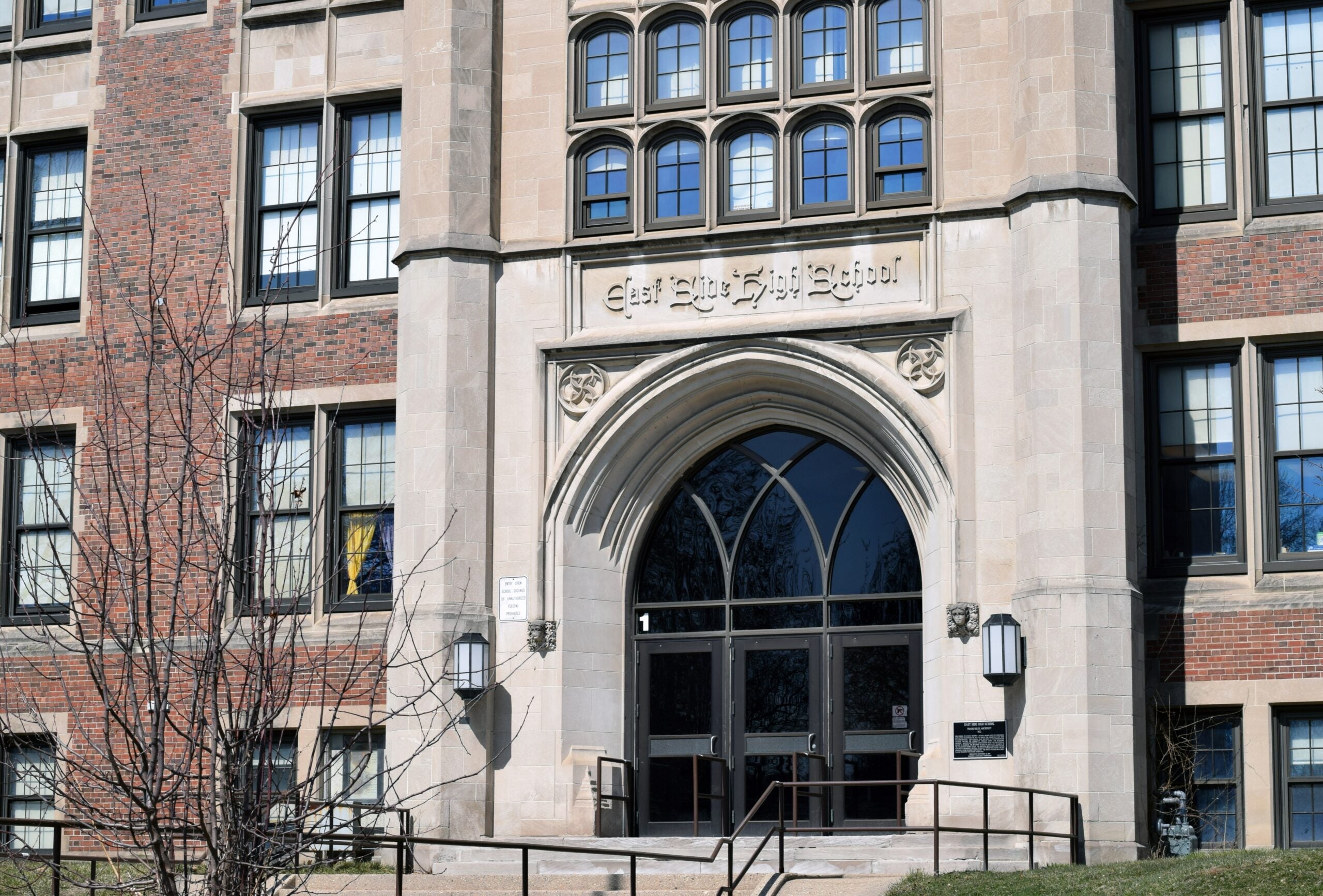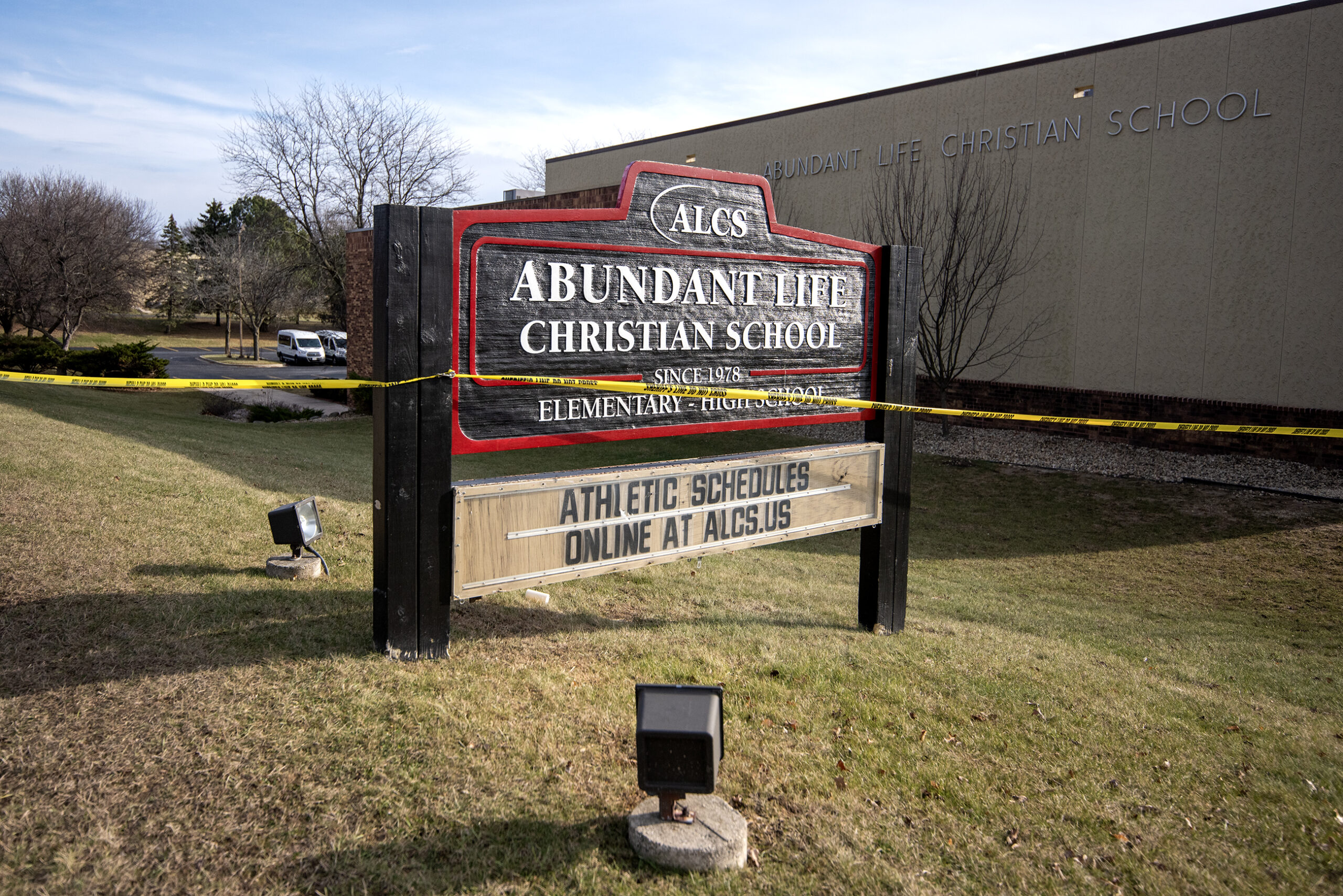The Madison School Board voted unanimously on Monday to launch a committee that will address school safety in the district.
The move came on the same day that a classroom fight erupted between two Madison East High School students and four months after a lunchtime brawl at the same school drew police armed with pepper spray and sent five students to the hospital.
“We were inspired by students mobilizing and organizing to demand a new environment that is responsive to their needs,” said Ananda Mirilli, school board treasurer and co-chair of the new committee. “We hope that the city, the county and the district can have a shared vision to support young people and that we’re actually showing up for our students and our families in ways that are supportive to them.”
Stay informed on the latest news
Sign up for WPR’s email newsletter.
The ad hoc Safety and Student Wellness Committee will be made up of 13 voting members: A school board member; student representatives from each of the six Madison public high schools; district, city and county representatives; and three at-large members.
Additionally, the committee will engage stakeholder groups of students, families, school partners, community leaders and mental health professionals. And it will be co-chaired by a student — East High senior Gordon Allen.
The committee’s goal is to examine the underlying causes of violence and disengagement in schools and develop district-level policies to support student safety and wellness.
Mirilli said the school district and board have learned a lot by observing how the district has responded to conflicts in the past, relying largely on punitive measures that push students out of schools.
“We already have a history of that and that shows in our data,” Mirilli said. “What we haven’t put into practice is our commitment to make sure that schools and classrooms are a place of belonging for all students and that’s what we heard (from students and families).”
That’s why the new committee is choosing to focus on student wellness.
For many students, nearly two years of virtual learning has made them feel disconnected. Rates of depression and anxiety among young people have skyrocketed.
“We have all experienced a great amount of collective trauma. One day, our schools were closed. And … the ways in which we experience learning … the ways we experience relationships with our peers have dramatically changed. From a human development perspective, that has a significant impact,” Mirilli said.
And, Mirilli added, the long-term impacts of these changes are unclear. But students are returning to schools that are underfunded and, in many cases, ill-equipped to support their mental and emotional needs.
According to Hopeful Future’s America’s School Mental Health Report Card, Wisconsin schools are underperforming in mental health and student wellness services. The state has about half the school counselors and psychologists that experts recommend. And there is one social worker for every 1,750 students — fewer than a third of what is recommended.
These absences are being felt even more acutely since the pandemic.
Reggie Golden, 16, a junior at East High, said younger students have struggled to make the leap to high school after being virtual for nearly all of seventh and eighth grade.
“This is like a bigger environment,” Golden said. “Elementary, middle school—that’s something to get you ready for high school and college. But once you get to high school, that’s when reality hit and you’re like, ‘I gotta learn how to move right.’”
Golden says a lot of school fights happen because students don’t know how to communicate effectively when conflict arises. While he is glad to see police officers removed from schools, he said students still need guidance.
“We definitely need a lot of discipline in the schools. Be hands on,” Golden said.
But he thinks that guidance should come from teachers and counselors. If a kid is getting suspended repeatedly, he said you shouldn’t expel them, you should listen to them.
“Show us more emotional support,” Golden said. He added that a regular all-school meeting, either in-person or virtually, would be a good way for students to voice their concerns.
After the fight at East in November, more than one-third of the students felt unsafe and chose to stay home the next day.
In the absence of district action, parents and community members near East stepped up. Since the November incident, a group of mostly mothers has shown up nearly every day during the school’s lunch hour. They hand out snacks and provide a positive presence in the neighborhood.
Golden said he and his friends appreciate what the parents group is doing. Especially taco Tuesdays.
And the district has taken notice, too. Mirilli said seeing the impact of this community support at East has shaped their vision for the new committee.
“When folks are given the opportunity to take care of their own community, they will do that. And that’s what we wanted to inspire in folks,” Mirilli said. “I’m deeply excited to try something different, to try something new. And I think that’s what our community needs.”
The committee is still assembling members but plans to meet bi-weekly for now. Their first official meeting will be on Thursday at 5:30 p.m. and can be watched on the Madison Board of Education’s YouTube page.
Wisconsin Public Radio, © Copyright 2025, Board of Regents of the University of Wisconsin System and Wisconsin Educational Communications Board.




